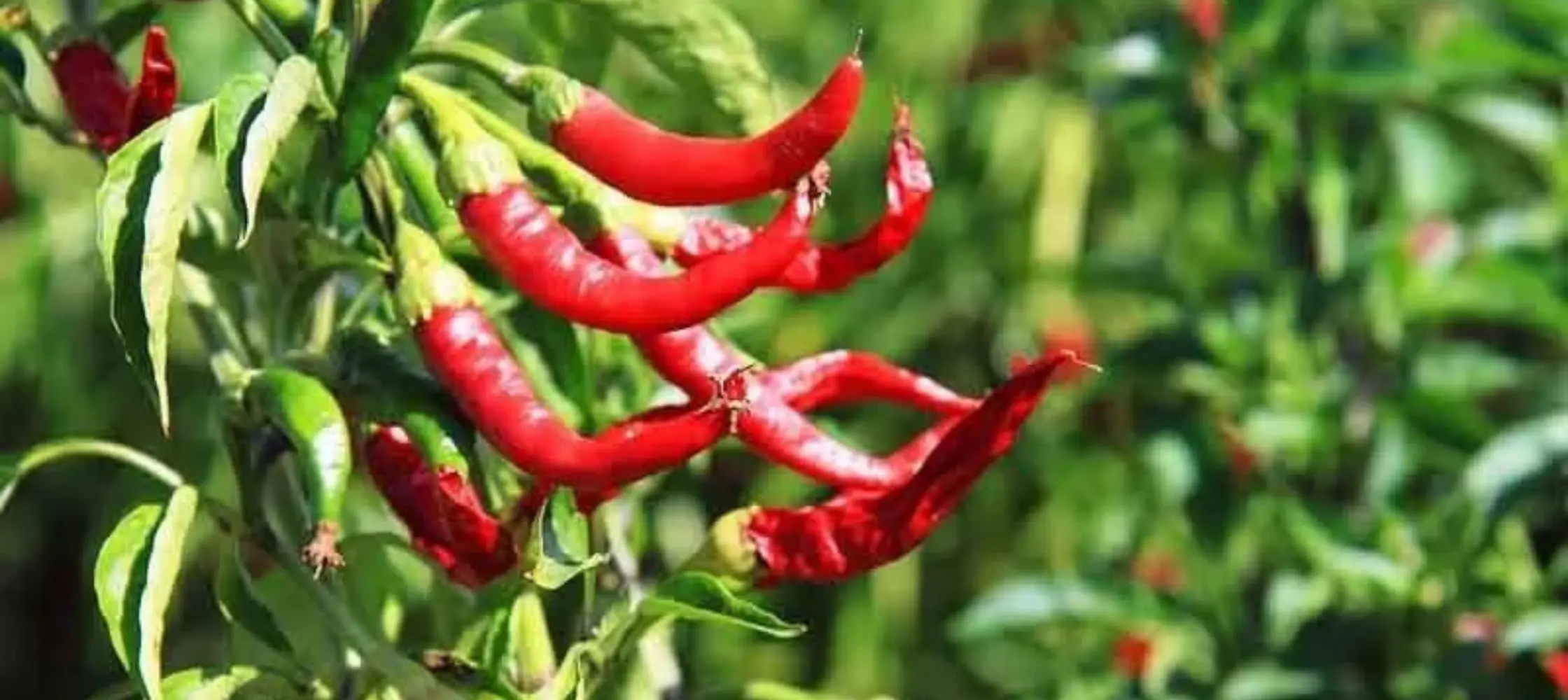
The Rising Panjab Bureau
In a remarkable leap towards agricultural diversification, the Doaba region of Punjab is witnessing a significant shift in vegetable crop cultivation, particularly in the adoption of improved hybrids and modern technologies. Among the various vegetable crops gaining popularity, PAU developed and recommended Chilli Hybrid-27 (CH-27) has emerged as the predominant choice, making its way from small-scale to commercial-level farming in a cluster of villages.
Covering an extensive area of 400 acres under chili cultivation, more than 50-55% of this cluster of villages now grows CH-27. The notable villages in this cluster include Narud, Panchat, Naseerabad, and block Phagwara (Kapurthala). This remarkable achievement has caught the attention of the agricultural community, leading to a special visit by Dr. Satbir Singh Gosal, the Vice-Chancellor of Punjab Agricultural University, Ludhiana.
Dr. Gosal's visit to the village of Naseerabad aimed to interact with the farmers who have adopted CH-27 in their fields and witness firsthand the impact of this hybrid on their agricultural practices. During the visit, he engaged in conversations with the farmers who shared their positive experiences, highlighting the exceptional yield and adaptability of CH-27 to the local climatic conditions, resulting in good returns.
Recognizing the significance of this agricultural advancement, Dr.Gosal commended the farmers for their proactive approach to embracing advanced agricultural methodologies. He encouraged them to continue their pursuit of excellence in chili cultivation and suggested exploring chili processing, such as chili powder, paste, and flakes, along with adopting the latest marketing techniques for better profitability.
Dr.Gosal assured the farmers that the PAU remains dedicated to fostering agricultural advancements and supporting farmers in their journey toward sustainable growth. He advocated CH-27 in the Doaba region as a true replacement for rice and Chilli cultivation in the Ferozepur area as an alternative for wheat. In both places, the Chilli crop can help diversify from wheat-paddy monoculture.
Joining Dr.Gosal during his visit were prominent scientists from PAU, including Dr. Tarsem Singh Dhillon (Head, Department of Vegetable Science), Dr. SK Jindal (Chilli Breeder), Dr. Harpal Singh Bhullar (Entomologist), and Dr. Navjot Singh Brar from the Vegetable Research Farm, Khanaura (Hoshiarpur).
Dr.Dhillon emphasized the importance of vegetable cultivation in diversification and highlighted the significant role played by the Doaba region in this context. He explained that chili could be a viable option for replacing paddy cultivation in the region, as farmers can fetch regular prices in the rainy season by selling green chili fruits. Furthermore, he pointed out that CH-27 provides fruiting for a longer duration compared to other hybrids, extending till December or sometimes even up to mid-January.
Dr.Jindal briefed the farmers about the production potential of PAU hybrids, giving them insights into the benefits of adopting these advanced varieties. Dr.Bhullar sensitized the farmers about the correct diagnosis of insect pest infestations and advocated for integrated pest management strategies aiming to reduce pesticide usage.
Dr.Brar facilitated the interaction, discussing future avenues in crop diversification through vegetable production in the region. The session served as an excellent platform for knowledge exchange, where farmers learned about innovative cultivation techniques and effective pest management strategies to optimize their yields.
During the discussion, farmers candidly shared their experiences, successes, and challenges faced in chilli production and marketing. They also expressed the need for establishing drying units and cold storage facilities in the region to secure higher returns for their produce. The farmers expressed their appreciation for the interaction organized by the Department of Vegetable Science and expressed a keen interest in future farmer-scientist meetings.
The interaction concluded with a heartfelt vote of thanks from the farmers, expressing their gratitude to the Punjab Agricultural University and its representatives for their valuable support and guidance in transforming agriculture in the region. With the enthusiastic adoption of Chilli Hybrid-27 and the collaborative efforts between farmers and the university, the Doaba region of Punjab is poised for further growth and success in agricultural diversification.
Your email address will not be published. Required fields are marked *
29 Jan, 2024
29 Jan, 2024
29 Jan, 2024
25 Jan, 2024